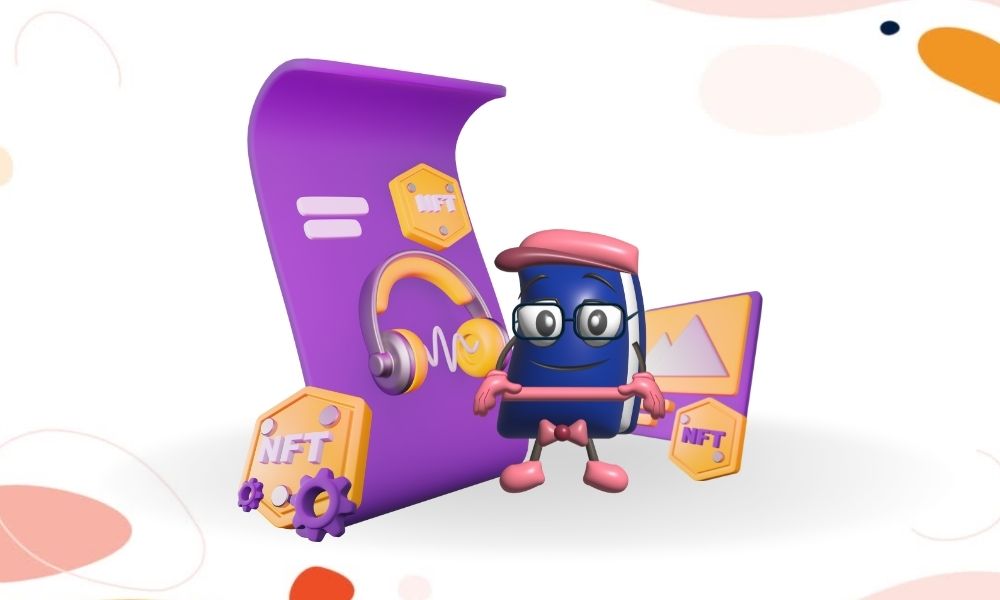
Tokens that can't be interchanged with other tokens on the blockchain are called non-fungible tokens (NFTs). They can't be bought, sold, or exchanged for anything of value, unlike cryptocurrencies.
In contrast, fungible tokens like cryptocurrencies are interchangeable since they all function identically as a means of exchange.
According to Mike Kondoudis, who has a trademark law license from the United States Patent and Trademark Office, the big record label Sony Music Entertainment has registered for trademarks involving non-fungible tokens and the Metaverse.
The giant of the music industry is preparing to provide live music performances in the form of downloadable audio and video recordings.
Tokens that can't be copied are used to verify the authenticity of these audio recordings. The petition further reveals that Sony Music intends to release music recordings in the form of NFTs.
Services related to the promotion of musical artists and their albums are also listed. Similar to traditional cryptocurrencies, non-fungible tokens can be exchanged for goods other than monetary value.
Several markets, notably the music sector, have already been revolutionized by them. Tokenized music recordings, or NFTs, can be traded like digital coins on the blockchain.
Many artists have jumped on the NFT bandwagon. Kings of Leon made history in March by releasing their debut album as a networked music download (NFT).
This month, Muse created history when its album "Will of the People" debuted at number one on the UK album chart as a limited edition NFT. You should know that the album was also released on CD and vinyl.
Meanwhile, the Weeknd partnered with the Binance exchange to incorporate NFTs and Web3 features into her worldwide tour.
U.Today reports that Universal Music Group (UMG), another major company responsible for signing Taylor Swift and other A-listers, bought an NFT from the Bored Ape Yacht Club NFT collection in March.
However, why are NFTs so widely used?
Tokens that are not interchangeable among users are called non-fungible tokens, created on the blockchain. Bitcoin and other cryptocurrencies rely on the blockchain because it records transactions immutably and makes that information publicly available.
NFTs, or nifties as they are more commonly called, are digital representations of physical goods like paintings, songs, and videos. They are traded digitally, typically using digital currencies, and are built on the same basic technology as several cryptocurrencies.
The blockchain records transactions in NFTs, which are often purchased with Ether or dollars. While the NFTs can be viewed by anybody, the bidder will gain the bragging rights of being the official owner.
Here's Why Non-Ferrous Objects Matter
Cryptocurrencies are based on a deceptively simple premise, and non-fungible tokens are the next logical step in their development.
Real estate, loan agreements, and works of art are just some of the assets that can be traded and lent against in today's complex financial systems. NFTs contribute to the reinvention of this infrastructure by allowing digital representations of physical assets.
Certainly, neither the concept of digital representations of physical goods nor the application of unique identification are particularly ground-breaking ideas. Together with the immutable nature of a blockchain's smart contracts, however, these ideas can effect significant change.
Enhanced market efficiency is perhaps the most noticeable advantage of NFTs. Transforming a physical asset into a digital one simplifies operations and eliminates middlemen.
By using NFTs on the blockchain to represent digital or physical works of art, artists can bypass middlemen and interact directly with their fans. They are also able to enhance operational procedures for businesses.
A wine bottle, for instance, could benefit from an NFT since it would facilitate communication between the various parties involved in the manufacturing and distribution of the wine.
Ernst & Young, a consulting firm, has already created such a solution for one of its customers. Tokens that can't be duplicated are great for keeping track of people's identities.
Let's use the example of actual passports, which must be shown at each port of entry and exit. Converting passports to NFTs with unique identifiers simplifies entering and leaving different jurisdictions.
To further this use, NFTs can also be used for identity management in the online environment.